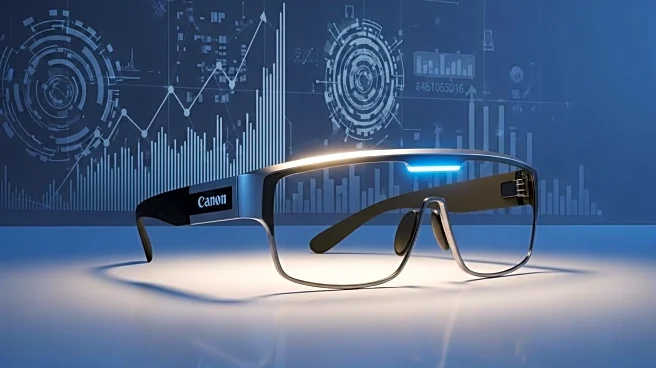What's Happening?
A diverse range of companies, from startups to established tech giants, are actively developing and selling smart glasses. Major players like Meta, Google, and Apple are leveraging their access to advanced components and AI models to enhance their smart glasses offerings. Smaller companies are also making significant strides, with HTC launching Vive Eagle in Taiwan and Amazon shipping Echo Frames with integrated speakers and microphones. The market is seeing a variety of smart glasses, including displayless models like Ray-Ban Meta and Oakley Meta, which combine cameras, speakers, and microphones. Additionally, HUD glasses are gaining traction, with companies like Meta and Amazon reportedly working on new models. These developments highlight the growing interest and competition in the smart glasses market.
Why It's Important?
The expansion of smart glasses technology represents a significant shift in consumer electronics, potentially transforming how users interact with digital content. For tech companies, this trend offers opportunities to capture new market segments and integrate AI-driven functionalities into everyday devices. The competition among major players and startups could lead to rapid advancements in smart glasses technology, enhancing user experience and accessibility. As smart glasses become more mainstream, industries such as healthcare, logistics, and entertainment may benefit from improved data visualization and hands-free interaction capabilities. However, privacy concerns related to camera-equipped glasses could pose challenges, necessitating careful consideration of ethical implications.
What's Next?
The smart glasses market is poised for further growth, with companies likely to continue innovating and refining their products. Amazon's reported plans to release HUD glasses for delivery drivers and consumers suggest a focus on practical applications and broader adoption. As more companies enter the market, competition may drive down prices and increase the availability of advanced features. Stakeholders, including tech companies and consumers, will need to navigate potential privacy issues and ensure responsible use of smart glasses technology. The integration of AI and augmented reality in smart glasses could lead to new applications and services, reshaping various industries.
Beyond the Headlines
The development of smart glasses raises important ethical and cultural questions, particularly regarding privacy and surveillance. As these devices become more prevalent, society will need to address concerns about data collection and the potential for misuse. Additionally, the cultural impact of smart glasses, including changes in social interactions and communication, warrants consideration. Long-term, the widespread adoption of smart glasses could influence fashion trends and consumer preferences, as well as drive innovation in related technologies such as AI and augmented reality.










